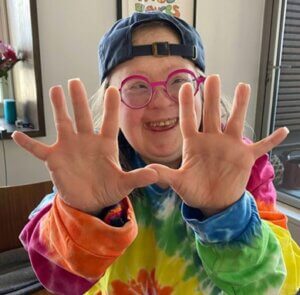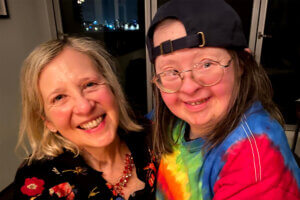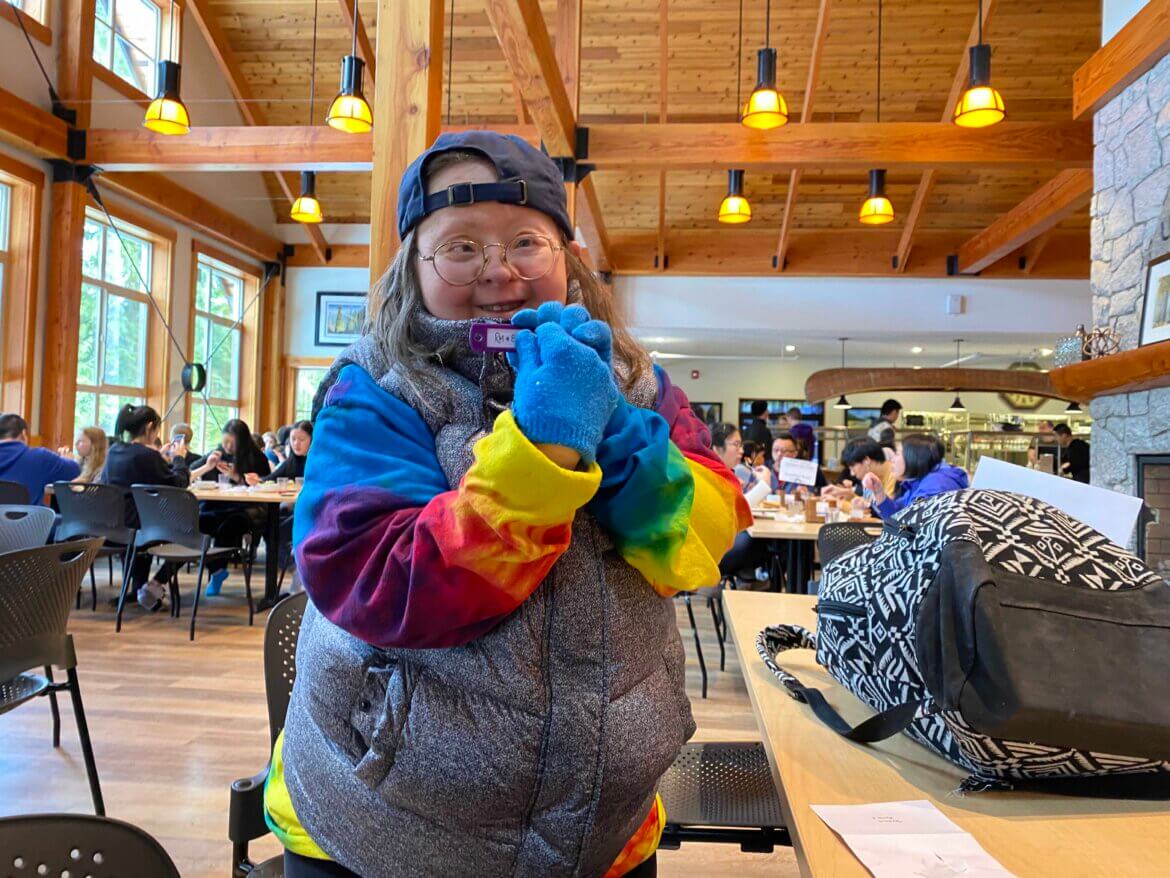Just like thousands of others with developmental disabilities
My sister’s life was written off 10 years ago with the stroke of a pen — just like thousands of others with developmental disabilities.
Teresa has Down syndrome and was 49 when the capacity assessment took place in Ontario.
I saw her as happy, healthy and active, enjoying living nearby with my 91-year-old father, who often said, “We’re a team. We help each other.”
But that’s not how the social worker saw her.
 Teresa didn’t understand what the assessment was for, and according to the records, she did not agree to be tested. But she didn’t say, “No.” So, the social worker asked her about her “activities of daily living.” When Teresa said that she could shower and dress herself, he concluded that her claims of independence were evidence of her “cognitive deterioration.” Others had told him she couldn’t do these things. Then, he ticked the “not capable” box on his form.
Teresa didn’t understand what the assessment was for, and according to the records, she did not agree to be tested. But she didn’t say, “No.” So, the social worker asked her about her “activities of daily living.” When Teresa said that she could shower and dress herself, he concluded that her claims of independence were evidence of her “cognitive deterioration.” Others had told him she couldn’t do these things. Then, he ticked the “not capable” box on his form.
Teresa immediately lost her right to decide where she lived.
When I first heard this, I was shocked. What about Teresa’s human rights? Wasn’t her right to live in the community protected by the Charter or the UN? Article 19 of the UN Convention on the Rights of Persons with Disabilities states that persons with disabilities have the right to live in the community, have the right to choose where they reside, and should not be isolated or segregated. And yet, these declarations didn’t protect Teresa.
Three years after Teresa’s assessment, a news exposé revealed that 2,900 young people with developmental disabilitieswere in nursing homes in Ontario.
Across the border, Disability Rights New Jersey reported in 2023 that over 2000 young people with developmental disabilities were in NJ’s long-term care “contrary to their wishes…because the state does not properly evaluate their needs.” Just like Teresa.
Last year, the Premier of Nova Scotia apologized to citizens with disabilities for the “historic, systemic discrimination”which denied them the right to decide where they lived. The UN’s Special Rapporteur, Catalina Devandas-Aguilar, wrote, “The deprivation of liberty on the basis of disability is a human rights violation on a massive global scale.“
Nursing homes have quietly become dumping grounds for people with developmental disabilities.
After the capacity assessment in 2013, Teresa was admitted to a nursing home — despite my offers to have her live with me. She was shocked. I was horrified. And our father, her primary caregiver, was heartbroken. Teresa was trapped, unable to get out without external help.
I heard many excuses: There aren’t enough group homes! Teresa’s been on the waitlist for five years! A bed in a nursing home is not great, but it’s not terrible. The government will pay for everything! And the unspoken assumption, what kind of future will she have anyway?
Four days after Teresa was put in, I went to the nursing home with my father, who signed her discharge, and Teresa was released “against medical advice.” Teresa moved in with me the next day.
 I was appalled that the system had failed Teresa. I wanted politicians to make sure it didn’t happen to anyone else. Two months later, Teresa and I appeared before Ontario’s Select Committee on Developmental Services. We told Teresa’s story by weaving her pictures and health records together. I said, “Teresa is an active, strong-willed and able-bodied adult. Teresa should never have been admitted to a nursing home.”
I was appalled that the system had failed Teresa. I wanted politicians to make sure it didn’t happen to anyone else. Two months later, Teresa and I appeared before Ontario’s Select Committee on Developmental Services. We told Teresa’s story by weaving her pictures and health records together. I said, “Teresa is an active, strong-willed and able-bodied adult. Teresa should never have been admitted to a nursing home.”
At the end of our testimony, the vice-chair MPP Christine Elliott said, “I think I can speak for all of us on the committee when I say that this is a truly shocking story.” In the final report, published on July 22, 2014, it said: “Long-term care homes are pressured to accommodate young and middle-aged people with developmental disabilities without any medical need for this type of care or any training to support this group of clients.”
It has been 10 years since Teresa was discharged, and she is thriving. Her artwork is now on a T-shirt celebrating World Down Syndrome Day 2024.
The system bungled Teresa’s assessment, and she narrowly escaped. But Teresa fought back and got her rights restored. In 2014, on World Down Syndrome Day, Teresa said, “It’s my human right to decide where I live.” She asked the government to “say sorry.” Two years later, Ontario’s Minister of Health publicly apologized to Teresa.
Despite sounding the alarm 10 years ago, thousands of young people with developmental disabilities are in nursing homes today, and more are being funneled in. That’s not fair. Nursing homes aren’t intended for people who have decades of life left. The average stay in nursing homes is 2.3 years, and most residents don’t get out alive.
Most vulnerable people, including those with developmental disabilities, can’t fight back against a system of forced care. Existing laws are not preventing this tragedy. We need education about ableism to change social attitudes and be genuinely inclusive.
Photo courtesy of the author.



